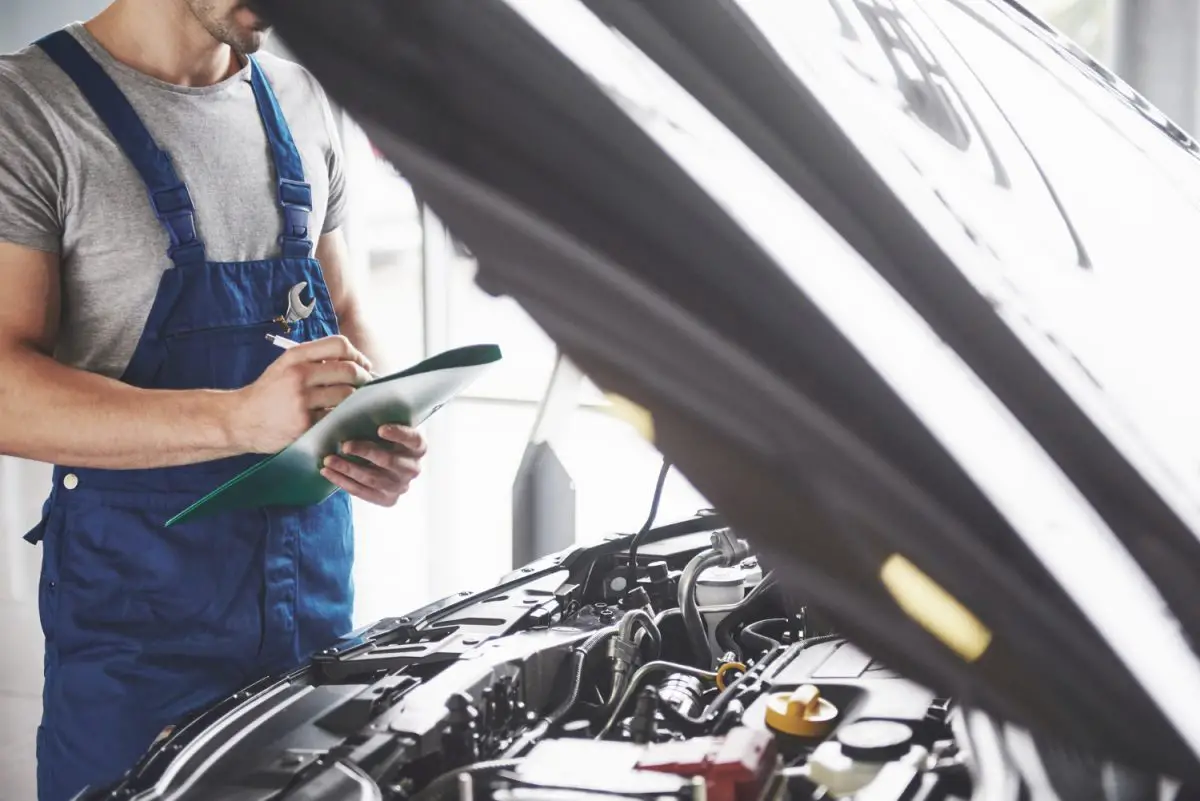Why is it important to have your vehicle inspected? Imagine driving down the road, enjoying the breeze, when suddenly your car starts sputtering and comes to a halt.
The inconvenience, frustration, and potential danger of unexpected breakdowns are just some of the reasons why regular vehicle inspections are crucial.
In this article, we will delve into the significance of having your vehicle inspected and how it can ensure your safety, save you from expensive repairs, and keep your vehicle running smoothly.
Regular vehicle inspections are vital because they help prevent unexpected breakdowns, ensure your safety on the road, and save you from costly repairs. By addressing potential issues early on, you can avoid major problems and keep your vehicle running efficiently.
Understanding Vehicle Inspections
Vehicle inspections are systematic examinations conducted by qualified professionals to assess the condition and functionality of a vehicle.
These inspections involve a thorough check of various components, such as brakes, tires, suspension, steering, lights, exhaust system, and more. By conducting regular inspections, you can ensure that your vehicle is in good working order and meets safety and environmental standards.
8 Reasons Why is it Important to Have Your Vehicle Inspected
1. Ensuring Safety on the Road
One of the primary reasons why vehicle inspections are important is to ensure the safety of both the driver and other road users. A well-maintained vehicle reduces the risk of accidents caused by mechanical failures. During an inspection, potential safety hazards like worn-out brake pads, faulty lights, or deteriorating tires can be identified and rectified promptly, preventing accidents and promoting safer roads.
2. Identifying Potential Issues Early On
Regular vehicle inspections allow for the early detection of potential issues or malfunctions. Identifying and addressing problems in their early stages can prevent them from escalating into more significant and costly repairs. Inspections help catch warning signs like engine issues, fluid leaks, or unusual noises, enabling timely repairs and minimizing the risk of breakdowns.
3. Maintaining Optimal Performance
Vehicle inspections contribute to maintaining the optimal performance of your vehicle. Through inspections, technicians can identify problems that may affect the performance and efficiency of your vehicle, such as clogged air filters, misaligned wheels, or worn-out engine components. Addressing these issues promptly ensures that your vehicle operates at its best, providing a smooth and enjoyable driving experience.
4. Enhancing Resale Value
Another key benefit of regular inspections is that they help enhance the resale value of your vehicle. When it comes time to sell a car, having a well-documented history of inspections and maintenance gives potential buyers confidence in the vehicle’s condition. A vehicle with a consistent inspection record is more likely to command a higher price and attract more buyers.
5. Complying with Legal Requirements
In many jurisdictions, regular vehicle inspections are mandatory and required by law. These inspections ensure that vehicles on the road meet certain safety and emissions standards. By having your vehicle inspected on schedule, you comply with legal requirements, avoid penalties or fines, and contribute to safer roads for everyone.
6. Improving Fuel Efficiency
Regular inspections can also contribute to improved fuel efficiency. Issues like underinflated tires, dirty air filters, or malfunctioning oxygen sensors can negatively impact fuel economy. By addressing these problems during inspections, you can maximize your vehicle’s fuel efficiency, saving money on fuel costs and reducing your environmental impact.
7. Preserving the Environment
Vehicle inspections play a role in preserving the environment by ensuring that vehicles meet emissions standards. A well-maintained vehicle emits fewer pollutants into the atmosphere, contributing to cleaner air quality. Inspections help identify and rectify issues that may lead to excessive emissions, allowing vehicles to operate more environmentally friendly.
Pro Tip: Is your car emissions-compliant? Find out its influence on your vehicle’s sale in our insightful article: “Can You Sell a Car That Doesn’t Pass Emissions?”
8. Peace of Mind for Vehicle Owners
Having your vehicle inspected regularly provides peace of mind for vehicle owners. Knowing that your vehicle is in good condition and safe to drive reduces stress and worry. Inspections offer reassurance that potential problems are being addressed promptly, allowing you to enjoy your vehicle without constant concerns about its reliability.
A Thorough Safety Inspection Covers Your Entire Car
A thorough safety inspection encompasses all aspects of your vehicle, including but not limited to brakes, tires, lights, steering, suspension, exhaust system, and electrical components.
It ensures that every crucial component is checked for proper functionality and potential safety hazards. By conducting a comprehensive safety inspection, you can drive with confidence, knowing that your entire vehicle is in good working order.
How Often You Should Get Your Car Inspected
The frequency of vehicle inspections may vary depending on factors such as local regulations, the age of your vehicle, and its usage. As a general guideline, it is recommended to have your car inspected at least once a year.
However, certain components may require more frequent inspections. Regularly consult your vehicle’s owner’s manual or a trusted automotive professional to determine the appropriate inspection intervals for your specific vehicle.
What to Do If You Fail a Vehicle Inspection
In the event that your vehicle fails an inspection, it’s important not to panic. Failing an inspection doesn’t necessarily mean a major problem with your vehicle. The first step is to understand the reasons for the failure.
Once identified, consult with a qualified mechanic to assess the required repairs. Address the issues promptly to ensure your vehicle meets the necessary standards. Once the repairs are completed, schedule a re-inspection to obtain the necessary certification.
Pre-Trip, During-Trip, and Post-Trip Inspection Tips
To ensure the safety and reliability of your vehicle during your travels, it’s essential to perform pre-trip, during-trip, and post-trip inspections. Here are some tips for each stage:
Pre-Trip Inspection Tips:
- Check tire pressure and condition.
- Inspect lights, including headlights, taillights, and turn signals.
- Verify the functionality of windshield wipers and washers.
- Examine the condition of brakes, including brake fluid levels.
- Ensure all fluids, such as engine oil, coolant, and windshield washer fluid, are at appropriate levels.
- Inspect the condition of belts and hoses.
- Test the functionality of the battery.
- Check for any visible leaks or damage.
- Verify the proper functioning of mirrors.
During-Trip Inspection Tips:
- Monitor dashboard warning lights and indicators.
- Listen for any unusual noises or vibrations.
- Pay attention to the vehicle’s handling and responsiveness.
- Monitor fluid levels, especially engine oil, and coolant, during long trips.
- Regularly check tire pressure and adjust as needed.
- Take breaks and rest when feeling fatigued.
Post-Trip Inspection Tips:
- Check for any signs of damage or wear and tear.
- Clean the vehicle, including the exterior and interior.
- Inspect tires for any punctures or damage.
- Address any maintenance or repair needs identified during the trip.
- Schedule a follow-up inspection if necessary.
Conclusion
Regular vehicle inspections are of utmost importance for various reasons. They ensure safety, detect potential issues early on, maintain optimal performance, enhance resale value, comply with legal requirements, improve fuel efficiency, preserve the environment, and provide peace of mind for vehicle owners.
By prioritizing inspections, you contribute to safer roads, save money on repairs, and extend the lifespan of your vehicle.
Frequently Asked Questions (FAQs)
Q: How often should I have my vehicle inspected?
It is recommended to have your vehicle inspected at least once a year or as per the guidelines provided by the vehicle manufacturer and local regulations. However, certain components may require more frequent inspections, such as brakes and tires, which should be checked regularly.
Q: Can I inspect my vehicle on my own?
While basic inspections like checking tire pressure or fluid levels can be done by vehicle owners, it is advisable to have a professional inspection performed for a more thorough assessment.
Q: What happens if I neglect vehicle inspections?
Neglecting vehicle inspections can lead to various consequences, including safety risks, unexpected breakdowns, reduced performance, and potential legal repercussions in jurisdictions where inspections are mandatory. Regular inspections help prevent these issues and keep your vehicle in top shape.
Q: How long does a vehicle inspection typically take?
The duration of a vehicle inspection can vary depending on the complexity of the inspection and the condition of the vehicle. On average, a comprehensive inspection can take anywhere from 1 to 2 hours. For more information check out our detailed guide on how long does a car inspection take.
Q: Can a vehicle inspection uncover hidden problems?
Yes, vehicle inspections can often uncover hidden problems that may not be apparent during regular use. Trained technicians are skilled at identifying potential issues that may not exhibit noticeable symptoms but can still impact the performance and safety of the vehicle.





